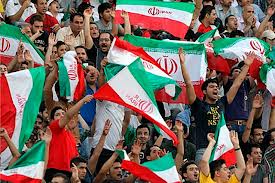By Mark Baber
January 12 – The 2015 AFC Asian Cup, being held outside Asia for the first time, is well underway with teams from radically different cultures competing on Australian soil in the 16th edition of the world’s second oldest continental competition.
Australia won the right to host the tournament in 2011 and the matches are being played in Sydney, Melbourne, Brisbane, Canberra and Newcastle with the hosts beginning their participation with a 4-1 win over Kuwait.
A great deal of media attention has focused on the Palestinian team who were swept aside 4-0 by Japan in their historic first Asian Cup. However, for the Palestinians participation is a victory in itself.
The best ranked Asian team is Iran and they began their campaign with a convincing 2-0 win over Bahrain in front of crowd of passionate Iranian fans in Melbourne, Australia’s diverse immigrant communities adding greatly to the tournaments atmosphere and appeal.
Coach Carlos Queiroz expressed his frustrations at the political interference in his team’s preparations telling AFP: “We suffer a lot to prepare friendly games and to move internationally to prepare the team and players. After the World Cup the situation is getting worse and worse.
“The players are victimised by the limitations of the sanctions.”
Particularly inexplicable for Queiroz, given FIFA and AFC’s non-interference stance, is the failure of FIFA to release up to $8 million in appearance money owed from the World Cup.
According to Queiroz, “Korea and Iraq did us a big favour, paying some of their expenses. When you come to this tournament (you see) it’s not about fair play. For those who always talk about fair play, there is no fair play.
“Fair play is to give opportunities to these kids to play international matches, to learn as all players deserve. It’s part of the FIFA spirit that politics should not interfere with the game.”
“Without support they cannot progress,” he shrugged. “At the end of the day when you don’t have resources to play games, it’s not fair for football, not fair for the young players of Iran.”
For Japan, the issues being expressed are somewhat more mundane, with players such as Japan and Southampton defender Maya Yoshida concerned about the effects of players leaving their clubs for the Asian Cup at a crucial time for their domestic clubs in Europe,
“In Europe, every country has a competition going on and we have to leave the club for one month in the winter transfer window,” he said. Whilst his own position is secure, according to Yoshida this constitutes “too much risk for the players,” and “if Asian football really wants to improve and catch up to European or South American football, we have to think about this situation.”
Contact the writer of this story at moc.l1741605186labto1741605186ofdlr1741605186owedi1741605186sni@r1741605186ebab.1741605186kram1741605186


